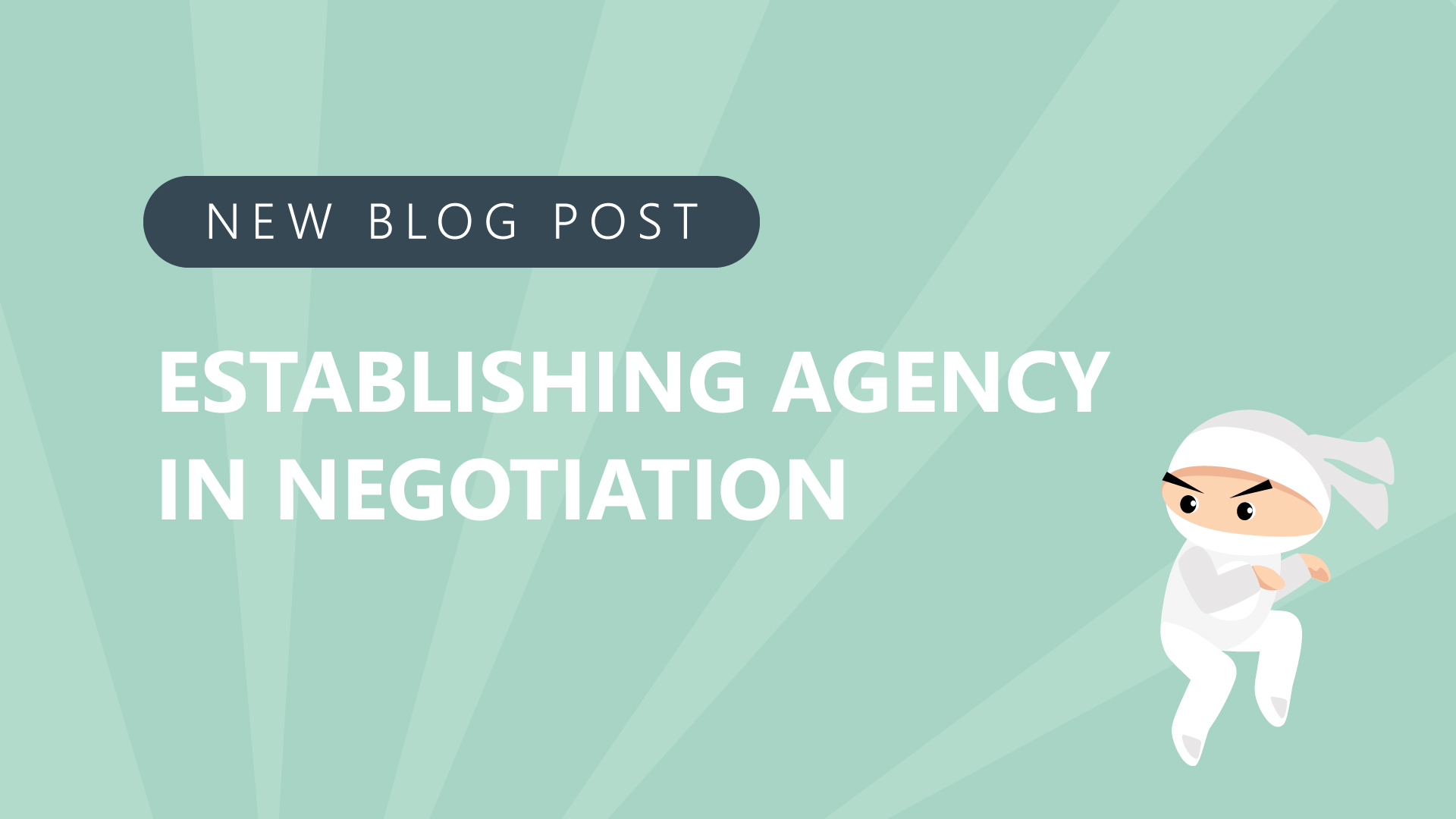What is agency? Agency is the capacity of individuals to have power over their choices and what happens to them.
Beth Fisher-Yoshida—professor and program Director of a Master of Science in Negotiation and Conflict Resolution at Columbia University—emphasizes that we create our situations. We create our relational dynamics and communication effectiveness. We have agency over what happens to us.
Because we create it, we have a role in modifying it if it’s not doing what we want. You can learn some new skills, roleplay, and gain feedback to gain more control over your negotiations. Showing up is an agency. Asking for something is agency. You’re putting yourself out there.
You’re not learning or advancing yourself if you sit back and disengage. And if you don’t show up, it will be more challenging to show up the next time. Beth always showed up, so she knew she could. Now, it’s ingrained in her to show up and engage in the conversation.
The relational aspect of negotiation
A hostage crisis negotiator doesn’t build long-term relationships. But in the process of negotiating a hostage release, you still need to build rapport. You need to establish trust. So, in any negotiation, you have to build rapport.
To build rapport, you have to enter a conversation with curiosity. You likely know what you want. But you don’t know where you stand in relation to the other person. You can get to know the other person and learn what they want while building rapport.
Beth has landed in many situations she never anticipated where she’s realized great outcomes. Opportunities have emerged because of the relationships she’s built. And it’s because she’s embraced agency and chosen to remain open and curious.
Two techniques to prepare for negotiation
So, you’ve chosen to take more control over the outcome of your negotiations. What’s your next step? Practice. Roleplay. Many people only negotiate or resolve conflict occasionally. But you can’t expect to improve when you don’t practice. Repetition is the key to becoming comfortable.
Beth likes to think of practice as learning a new dance. If you practice enough, you start to move as soon as you hear the music. You remember the steps and rhythm. It becomes muscle memory. You have to build that muscle in negotiation.
She has her students complete two exercises to practice and prepare for negotiations:
Exercise #1: Beth asks her students to think about possible scenarios.
- What do you want?
- How are you going to ask for it?
- What are the possible responses you might get?
- How will you respond in each scenario?
Doing this helps prepare you so you’re not shocked by a response you hadn’t anticipated.
Exercise #2: Beth also advises her students to have a question ready if they’re thrown off and lose track. It gives you a chance to get new information while you can recenter, calm down, and get back on track.
What else can you do to establish agency and become a better negotiator? Develop self-awareness. Beth takes a deep dive into the topic in episode #397 of Negotiations Ninja. Check it out!

